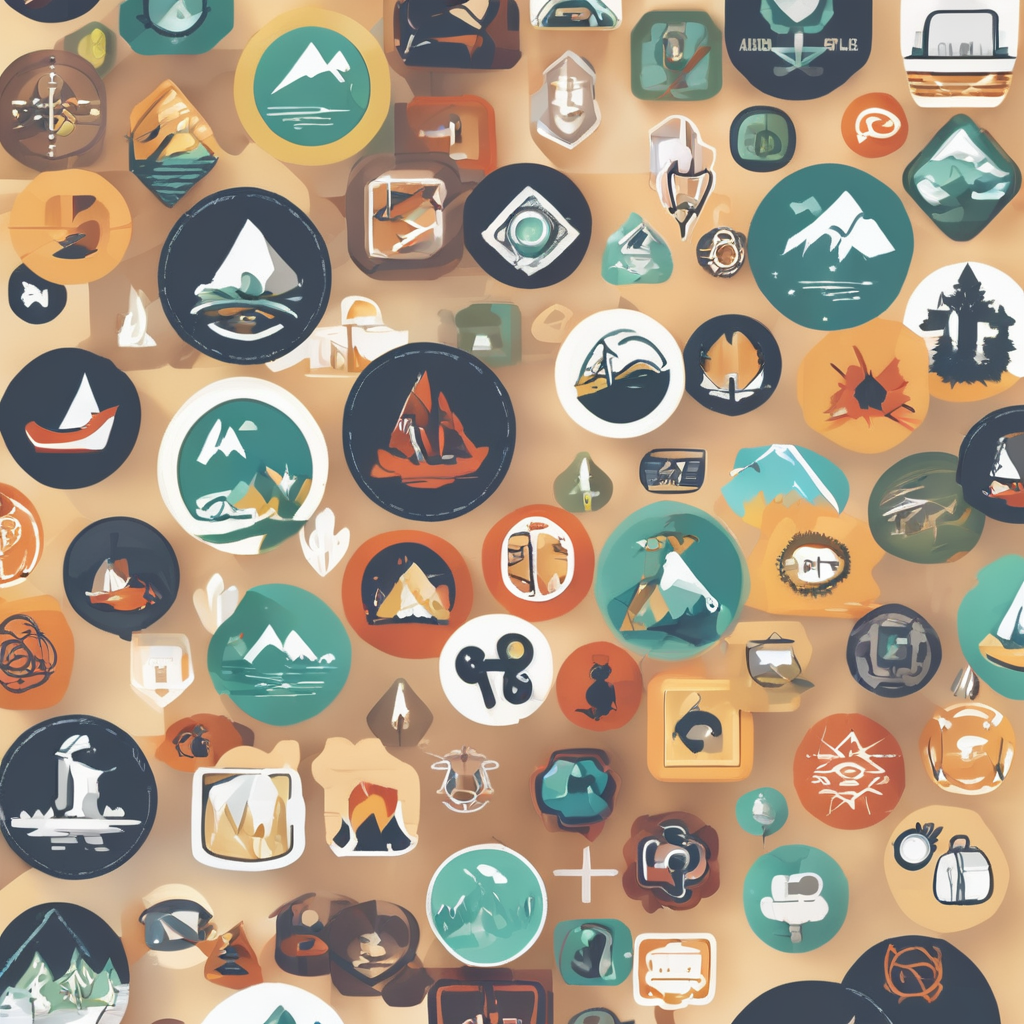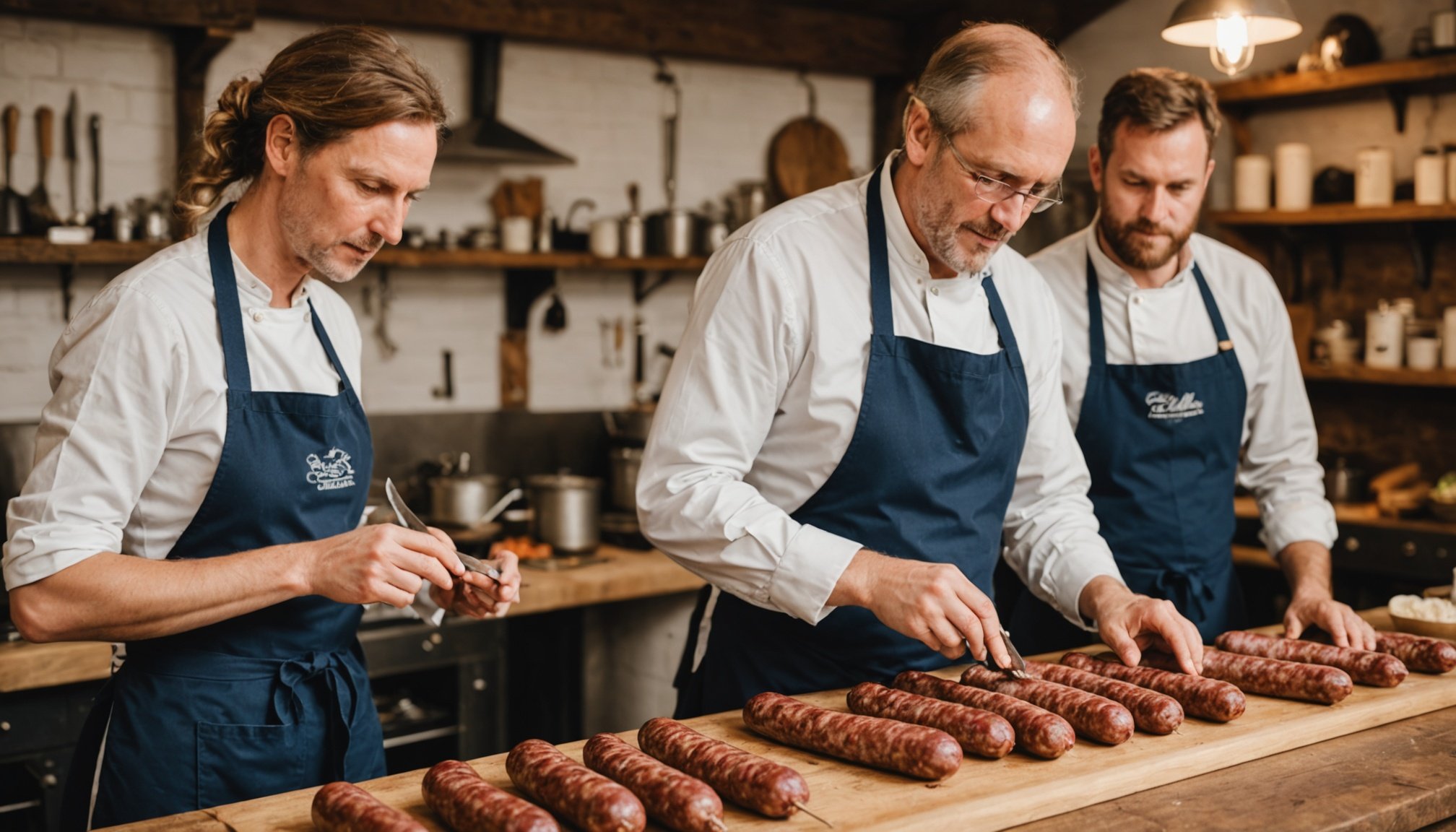Overview of British Sausage Making Workshops
Exploring the world of British sausage making offers not just a culinary delight, but a glimpse into a tradition deeply rooted in the United Kingdom’s rich history. Participants in these interactive workshops are introduced to the fascinating art of crafting sausages, a practice dating back centuries. Such hands-on culinary experiences not only satisfy a traveler’s quest for knowledge but also enrich their understanding of British culture through gastronomy.
In these workshops, a diverse variety of sausages are explored. Attendees might craft anything from the classic Cumberland sausage, known for its distinctive spiral shape, to the famed black pudding, a type of blood sausage that is quintessentially British. This diverse range ensures that each session is not just educational but thoroughly enjoyable.
In parallel : Discover british animation history: a tourist”s guide to immersive exhibits in london
These workshops cater to both novice cooks and seasoned enthusiasts, blending storytelling with culinary skill development. It’s a unique way for travelers to connect with local customs and explore the historical significance of this staple food. More than just a cooking class, it’s an immersive experience that crafts a tangible connection between gastronomy and culture.
Locations for Sausage-Making Workshops
For those interested in culinary travel, the UK offers a plethora of sausage-making locations. Major cities like London, Manchester, and Edinburgh are home to several workshops, allowing enthusiasts to dive into the craft alongside exploring these vibrant locales. Each sausage-making workshop presents a unique opportunity to indulge in regional specialties, with local establishments often hosting these engaging sessions.
In London, artisan charcuteries offer workshops emphasising the art of blending traditional methods with modern twists. Meanwhile, Manchester provides an industrial yet intimate setting, perfect for learning about the city’s culinary evolution. Edinburgh offers a backdrop rich with history, where participants can engage in crafting sausages renowned for their unique spice blends.
Beyond the major urban areas, numerous quaint towns throughout the UK host workshops celebrating local sausage varieties such as the Cumberland sausage. These workshops often highlight ingredients particular to their regions, adding diversity to the UK sausage workshops experience. For lovers of culinary experiences, the opportunity to learn and create in these culturally diverse settings is invaluable.
Whether it’s tucked away artisan corners or bustling city spots, the UK’s sausage-making locations are plentiful, providing ample choice for those keen on expanding their gastronomic adventures.
Workshop Structure and What to Expect
Embark on a culinary adventure where every moment brims with excitement. During the workshop duration, participants are guided through a thoughtfully curated schedule that promises an immersive experience. It typically begins with a brief historical overview, setting the stage for the hands-on practice.
As the session unfolds, attendees dive into cheese making techniques, mastering the art of mixing spices, filling casings, and exploring different binding methods. Various cooking classes provide a platform to learn indispensable skills. You’ll develop familiarity with traditional cooking tools as well as modern gadgets, enhancing your culinary toolkit.
The heart of these experiences is undoubtedly the interactive workshops. Participants, whether novices or seasoned cooks, are encouraged to engage actively. Expect a dynamic environment where participant experience is enriched through collaboration, storytelling, and guidance from expert chefs who share invaluable tips.
Each workshop accommodates diverse learning styles, ensuring all aspects – from culinary technique to cultural storytelling – are catered to. This rich blend of history, practice, and guidance ultimately transforms the sausage-making process into an enjoyable and enlightening culinary experience for every participant.
Pricing and Accessibility
British sausage-making workshops offer a range of pricing options to suit different budgets and preferences. Participants can expect to pay from £50 for a basic session to over £150 for more comprehensive and exclusive experiences. These costs often include materials, guidance from expert chefs, and tastings.
Booking information is straightforward, with many workshops offering online reservations. It’s crucial to book in advance, particularly during peak travel seasons, as spaces can fill quickly. Some providers also offer the flexibility of group bookings or private classes for a more personalised learning experience. This can be ideal for families, corporate events, or culinary enthusiasts wanting a focused session.
Accessibility is a priority for many workshop organisers. Locations typically cater to various needs, ensuring that those with mobility challenges or dietary restrictions can fully partake in the culinary experience. It’s advisable to communicate any specific requirements during the booking process to ensure a tailored experience.
The combination of transparent workshop pricing and thoughtful accessibility options enhances the appeal of these workshops, making them accessible and inviting to a broad audience, eager to delve into the art of British sausage making.
Testimonials and Reviews
Uncover the voices of participant testimonials and see how workshop reviews illuminate the enriching journey of sausage making. Echoing through these comments is a consistent narrative of joy and learning, often highlighting the fun and educational nature of the experience. Many share that these workshops are not merely classes but immersive adventures that deepen cultural ties and culinary appreciation.
One attendee remarked, “The experience was as delightful as it was informative, a true dive into British culture and gastronomy,” capturing a sentiment often reflected in customer feedback. Participants frequently praise the skilled chefs for their engaging storytelling, which enhances the cultural immersion aspect, making history come alive through food.
In comparing different workshops, users often highlight variances in style and focus. Some appreciate the historical depth, while others enjoy the focus on culinary skill. The common thread remains: whether you’re an amateur or a seasoned cook, these workshops offer valuable insights and transformational experiences. Expect glowing reviews across the board that solidify the appeal and credibility of these unique culinary experiences in the UK.
Complementary Experiences and Accommodations
Culinary tourism in the UK isn’t limited to just British sausage making workshops. Travelers can enrich their stay with a range of complementary local experiences and accommodations geared towards the gastronomic enthusiast.
When partaking in culinary tourism, consider exploring nearby attractions. For instance, if you’re attending workshops in London, delve into the bustling Borough Market. Here, you’ll encounter a delectable assortment of British and international food stalls. Similarly, in Manchester, the Northern Quarter offers eclectic eateries and artisanal cafes for further exploration.
For those wishing to extend their immersive culinary journey, local travel accommodations tailored for food lovers are abundant. Opt for boutique hotels that offer cooking classes or have renowned in-house restaurants, providing an integrated experience.
Additionally, keep an eye out for culinary tours or food festivals coinciding with your workshop schedule. Events like the Abergavenny Food Festival or the Great British Beer Festival present perfect opportunities to enjoy Britain’s rich culinary tapestry. By integrating these experiences, travelers can savor a broader spectrum of the UK’s vibrant food culture while enhancing their adventure in sausage-making workshops.
Visual Insights into Workshops
Enhance your experiential learning with captivating workshop photography. Visuals offer a unique glimpse into the vibrant process of sausage-making, capturing the essence of this hands-on art form. Imagine snapping a shot as you blend spices or when the sausage casing finally takes its plump shape. Such images not only document your culinary journey but also imbue a sense of accomplishment.
To maximize your photographic opportunities, consider bringing a camera or smartphone that captures fine details. The dramatic contrast of the rustic kitchen setting against the vibrant ingredients makes for compelling imagery. Pay attention to key moments – the deft movements of the knife, the twist of a completed sausage link, or the pride on a participant’s face.
For travelers, sharing these visuals serves as an avenue to engage others in the sheer joy of culinary experiences. Whether through social media posts or personal albums, your photos become storytelling elements, bridging cultures and sparking curiosity. Moreover, workshops often encourage participants to share their visuals, creating a collective memory bank.
Capture these memories with intention, allowing your sausage-making visuals to enrich and extend the narrative of your journey into the heart of British culinary tradition.
Visual Insights into Workshops
Engage your senses and document your culinary adventures through workshop photography. Capturing the rich array of sausage-making visuals is not only a way to treasure memories but also share them, turning every snapshot into a story.
In these interactive workshops, every stage offers unique photographic opportunities. Imagine photographing the intricate process of mixing spices, or capturing the satisfaction of filling casings to form the perfect sausage. Each moment in these culinary experiences becomes a vivid canvas, blending skill and creativity.
To make the most of your experiential learning, bring along a camera or a capable smartphone to capture the magic. Focus on the contrasts – such as the bright colours of ingredients against traditional kitchen tools. Highlight pivotal moments: the twist of a completed link or the lively atmosphere in the workshop.
Sharing these images enables others to join the journey, bridging communities through the universal language of food. Participants are encouraged to showcase their visual insights on social media or in personal collections, creating a tapestry of shared experiences that immortalise their culinary endeavours.




